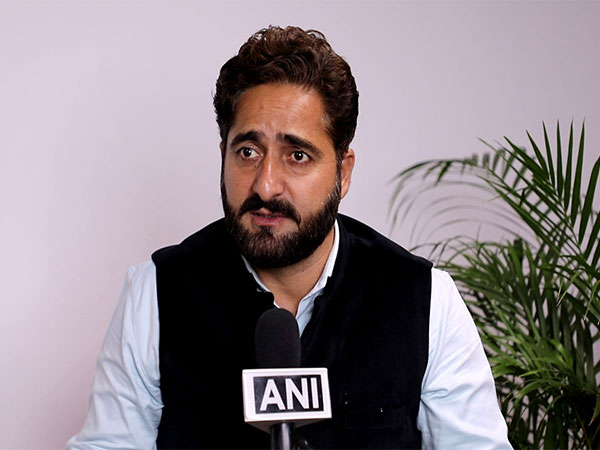Javed Beigh Criticizes Pakistan's Misinformation on Kashmir at UNGA
Jammu and Kashmir activist Javed Beigh criticizes Pakistan's misinformation on Kashmir at the UNGA. He highlights the contrast between Indian-administered regions and those under Pakistan's control. Beigh emphasizes India's strategic interests in PoGB and PoJK, condemns Pakistan-sponsored terrorism, and urges global attention to human rights violations.

- Country:
- India
Jammu and Kashmir political activist Javed Beigh sharply criticized Pakistan for its continued peddling of misinformation about the Kashmir issue, particularly following Prime Minister Shehbaz Sharif's speech at the United Nations General Assembly (UNGA). Speaking with ANI, Beigh accused Pakistan of exploiting global platforms to distort the true state of affairs in Jammu and Kashmir as compared to Pakistan-occupied Jammu and Kashmir (PoJK) and Pakistan-occupied Gilgit Baltistan (PoGB).
Participating in the 57th session of the UN Human Rights Council in Geneva, Beigh expressed his frustration over Pakistan's longstanding narrative on Kashmir, which he described as a manifestation of Pakistan's political instability. He pointedly termed Pakistan a "failed state," dominated by its military and intelligence agencies. Beigh questioned the legitimacy of Prime Minister Sharif's government, insisting, "It's not the people of Pakistan speaking. It's the establishment," and accused the leadership of misleading both Pakistanis and the international community about Jammu and Kashmir.
Beigh stressed that PoGB and PoJK are integral parts of India, underscoring that these areas have been under illegal Pakistani occupation for decades. He highlighted their strategic importance to India, particularly PoGB, which could disrupt the land connection between Pakistan and China and provide India access to Central Asia via the Wakhan Corridor. Beigh emphasized that reclaiming these regions is vital for India's vision of becoming a "Vishwaguru."
Drawing a stark contrast between the youth of Indian-administered Jammu and Kashmir and those in PoJK, Beigh noted that while Kashmiri Muslims in India gain international acclaim in various fields, Pakistan radicalizes PoJK youth into militants for its proxy war against India. He referenced a recent terrorist attack in Jammu and Kashmir's Reasi district to illustrate Pakistan's ongoing use of terrorism, contrasting this with the positive global contributions of Kashmiri youth in India.
Beigh also urged the global community to acknowledge the maltreatment of Kashmiris under Pakistani control, calling for an honest dialogue about human rights violations in PoJK and PoGB. His comments come at a pivotal time, as peaceful elections in Jammu and Kashmir indicate a significant shift in the region's political landscape, further discrediting Pakistan's claims of instability.
In his UNGA address, Prime Minister Sharif called for India to reverse the abrogation of Article 370 and enter into dialogue with Pakistan. However, Bhavika Mangalanandan, First Secretary of the Permanent Mission of India to the UN, strongly rebutted Sharif's allegations, emphasizing Pakistan's use of terrorism to disrupt democratic processes in Jammu and Kashmir.
Mangalanandan highlighted Pakistan's history of cross-border terrorism, including the 2008 Mumbai attacks and the 2001 Indian Parliament attack. She stressed that India desires normal bilateral relations with Pakistan, contingent on a terrorism-free environment.
India has consistently provided proof of Pakistan's support for terrorist organizations on international platforms. (ANI)
(With inputs from agencies.)
- READ MORE ON:
- Javed Beigh
- Pakistan
- Kashmir
- UNGA
- PoJK
- PoGB
- terrorism
- human rights
- Jammu and Kashmir
- Shehbaz Sharif
ALSO READ
Modi Promises New Leadership Amid Final Push Against Terrorism in Jammu & Kashmir
PM Modi's Vision for a New Jammu and Kashmir: Ending Terrorism and Dynastic Politics
PM Modi Rallies in Doda: BJP's Stand Against Terrorism
Farooq Abdullah Accuses PM Modi of Misleading Nation Over J&K Terrorism Claims
Amit Shah Vows to Eradicate Terrorism in Jammu and Kashmir










